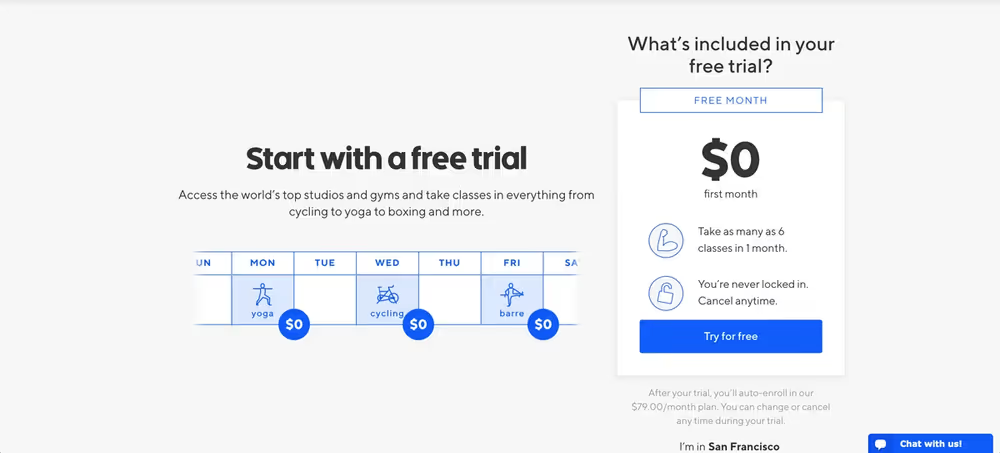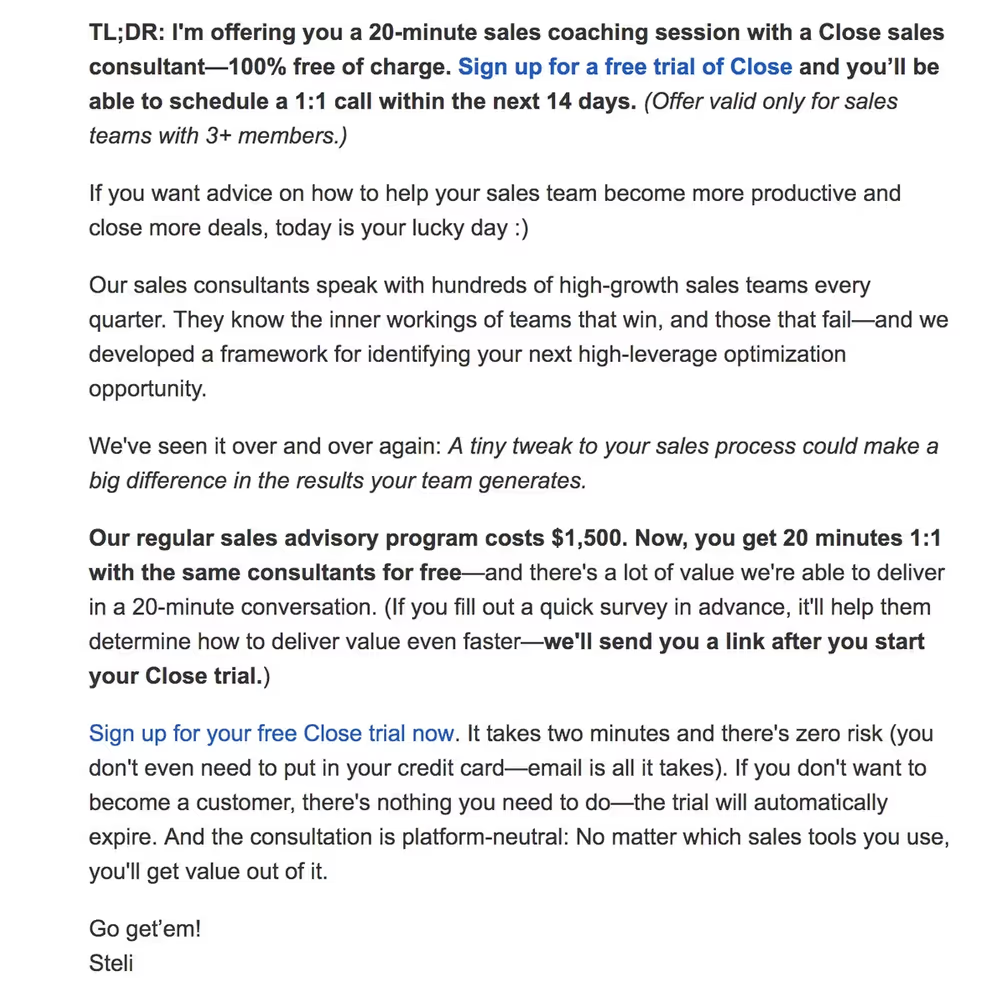Education, Information, & Service Business Onboarding
Many companies are "service businesses." This means they sell their people's time: a consulting agency "sells" their hourly consultants, a coaching service "sells" hourly coaches, a therapy app "sells" hourly therapists, etc.
Other companies are "information businesses," such as books, seminars, pre-recorded video courses, paid podcasts, etc. Education companies fall in this bucket.
For these types of companies, we've seen two patterns that distinguish high-converting onboarding flows from poor ones.
- They demonstrate a lot of expertise up front.
- They do free consultations.
They demonstrate a lot of expertise up front
When someone first hears of you, they first need to understand that you actually know what you're talking about before they buy.
You wouldn't get hired for a job without having an interview. You wouldn't get hired for a senior role without proving you're an expert. The same goes for service businesses; they need to get "hired." Demonstrating expertise is their interview process.
If you can get someone from your team on podcasts, or have them write industry newsletters, do it. It helps a lot when you try to convert people in your pipeline.
Examples
Coding bootcamps offer free curriculum online and free prep courses to demonstrate expertise. Many offer free tutoring sessions with instructors. This often makes the difference between ads working and not working.
Investment firms write guides and content around their areas of expertise. This can live on a blog, in a podcast series, or elsewhere.
Student Story
One of our students built a course on how to improve people's reading habits. It cost $100 to access. They ran Facebook ads pointing at a signup page for a free webinar. This drove 100+ signups in a week — on $550 of ad spend. Very profitable.
They do free consultations
To demonstrate expertise, the best companies put real human beings in front of leads to give them free advice.
Examples
Successful personal finance education companies invite all their leads to free seminars on 401Ks and saving for retirement, then mention their full program at the end of the seminars — after proving their expertise.
Ad agencies offer free audits, webinars, and office hours with partner agencies.
Workout companies offer new members a free first class (or month of classes).

Sales consultancies offer free consultation sessions.

In the example above, the copy is a bit salesy, but the principles are correct. Notice how they hit on the scale of their expertise ("our consultants speak with hundreds of high-growth sales teams") and also talk about how valuable their consultations are ("our regular program costs $1,500").
Paid Social Acquisition
If you're an education/informational/service business planning to run paid social channels, such as Facebook/Instagram Ads, Pinterest Ads, LinkedIn Ads, etc...don't run ads directly to your site asking people to sign up.
That almost never works.
Instead, point ads at something free and "gated" ("gated" means asking for their email address before they can access the content). This can mean free content, a webinar, a form for a free consultation, etc.
Do not try to directly get people to sign up for your program. This applies to any cold outreach you do as well.
Note: This does not necessarily apply to higher-intent channels, such as Google Ads and Quora, where people are actively looking for solutions. You'll want to test both direct and gated content approaches with these.
Caveats
Of course, there's a downside to offering all this free stuff: some people won't pay you afterward.
On your end, as a growth marketer, some fraction of the people who read your stuff and meet your people need to actually convert...and pay. Otherwise, it's not worth the investment.
So, how do you make sure you're not wasting your time?
The key is to only offer free stuff to leads who you'd reasonably expect to pay — so your free hours don't get taken advantage of.
Meaning: segment your leads. Offer cheaper things to lower-quality leads.
Don't offer free consultations to everyone who fills out the form on your site. Use a tool like Clearbit Enrichment and look up leads on LinkedIn to see if they look like a fit — before you reach out.


